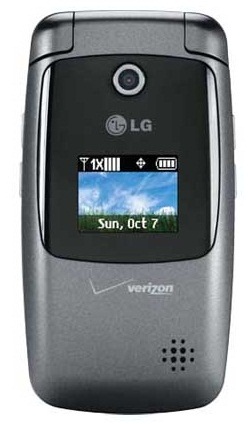Smartphones have gained so much significance in our lives that choosing one is a little like choosing a religion. Our preference for either an iPhone or an Android model seems to suggest something fundamental about who we are.
By the terms of this analogy, Tamar Beja would be a nonbeliever.
Beja, a 34-year-old Oakland artist, is a low-tech holdout, the owner of a “dumbphone.” She can use her Samsung Intensity II to talk and text, but that’s about it. And she has no interest in an upgrade — Beja savors the ability to disconnect.
“People always ask me what my relationship with my phone is,” she said. “And I’m like, ‘I don’t have one.’”
Resisters like Beja make up a small portion of U.S. cell phone users — less than 30 percent of mobile accounts (only 13 percent in Beja’s age bracket, 25 to 34), according to Forrester Research. And nearly half of those dumbphone users have incomes under $49,000 a year, suggesting the choice had to do more with economics than preference.
But for those holdouts who resist on principle, their phones represent a decision to opt out of the connected culture. It’s an almost unimaginable — and enviable — luxury. Beja doesn’t regularly check her e-mail. Nor is she tempted to waste time scrolling through Facebook and Instagram on her phone.
“I’m not a complete Luddite,” said Beja. “I just don’t want to be connected all the time. Maybe I’ll try a new restaurant without finding out what Yelp says first. It’s like finding a treasure in a thrift store. There is a lot of adventure missing when you use a smartphone.”
The dumbphone has even acquired celebrity acolytes. Vogue editor Anna Wintour, a one-time iPhone user, was recently spotted clutching a $15 flip phone. Shailene Woodley, the 22-year-old star of “Divergent,” uses one. And Indianapolis Colts quarterback Andrew Luck extolled the virtues of his flip phone in an interview last week on NFL.com.
“It’s just a nice way to not be connected 24/7 with what’s going on in the world,” he said.
As smartphones have become ubiquitous, a growing body of work has attempted to reconcile the consequences of constant connectivity.
In Nicholas Carr’s 2010 book “The Shallows: What the Internet Is Doing to Our Brains,” he argues that constant Web browsing has diminished the brain’s ability to sustain focus and think interpretively. (Carr uses a dumbphone.)
Researchers have found that smartphones can cause stress and make it harder to sleep.
David Meyer, a University of Michigan psychologist who studies multitasking, has seen first hand the downsides of the smartphone: he started using one a year ago, when a frustrated friend bought one for him.
Meyer agrees with Carr’s assessment of the repercussions of those habits: “Your smartphone has turned you into a dumb organism,” he said.
Even so, he often finds himself seduced by the device.
“You get sucked into wanting to do it all the time,” he said. “There is now a pressure to always respond immediately. People literally take their phone to bed.”
“When I retire, I will at least go on iPhone breaks,” he added.
Sara Pritchard, a historian of technology at Cornell University, says her dumbphone helps her to be more productive and forces her to be more thoughtful about how she spends her time. Like most dumbphone users, she feels like it allows her to be “present” — rather than spending dinner with a friend splitting time between the real world and the screen.
But she said there are other advantages. She has a dirt cheap pay-as-you-go plan. AT&T offers a $40 per month plan, half the price of a similar contract for a smartphone. Her phone is 7 years old and works perfectly well, she said, although the logo has worn off and she has no idea who manufactured it.
For Laura Taylor, a 32-year-old Noe Valley nanny and graphic designer, one perk of her flip phone is its sturdy build.
“I could probably use it as a weapon,” she said. “It charges in five minutes and I can go days without charging it again.”





